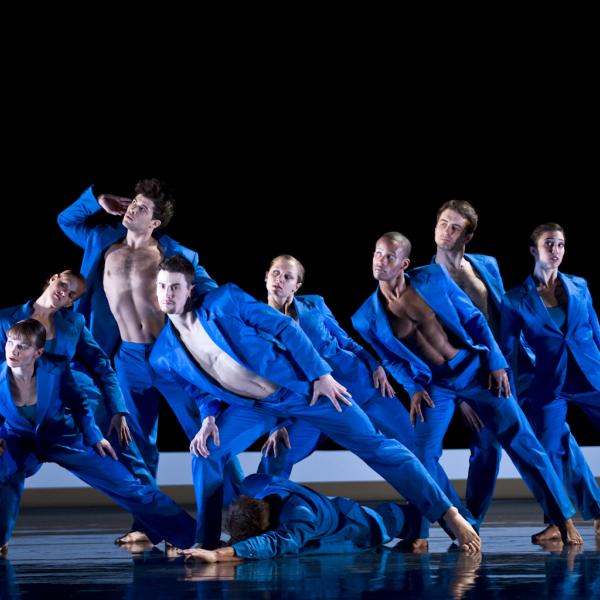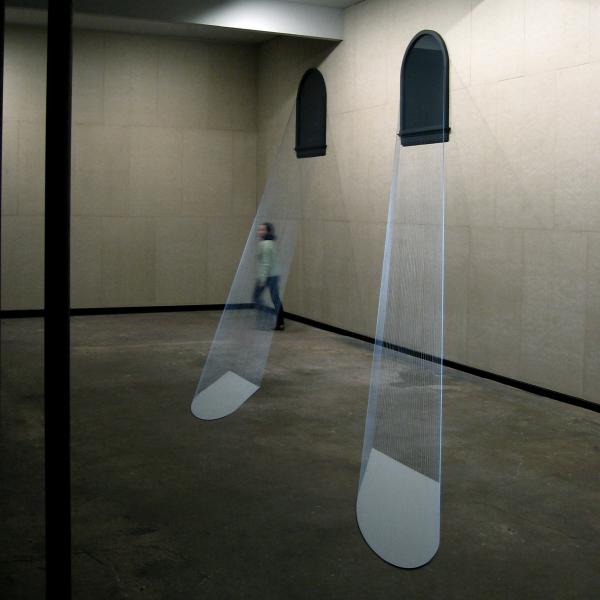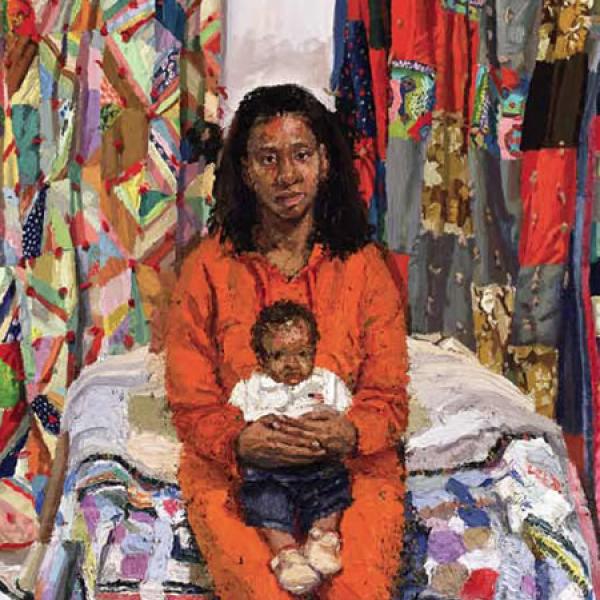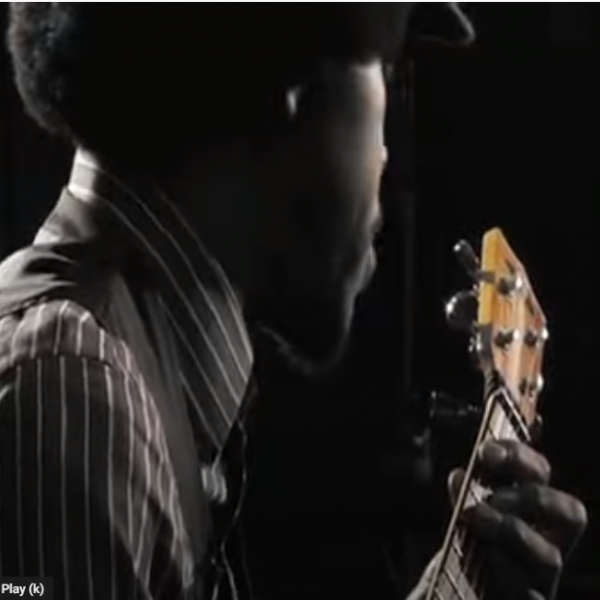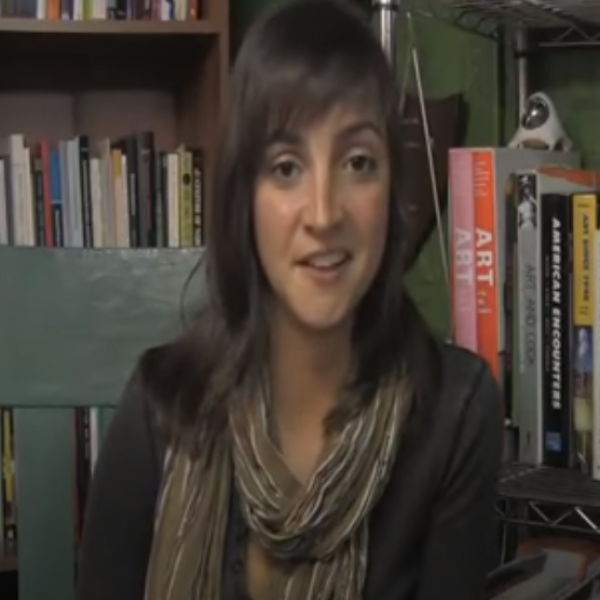A Mysterious Force
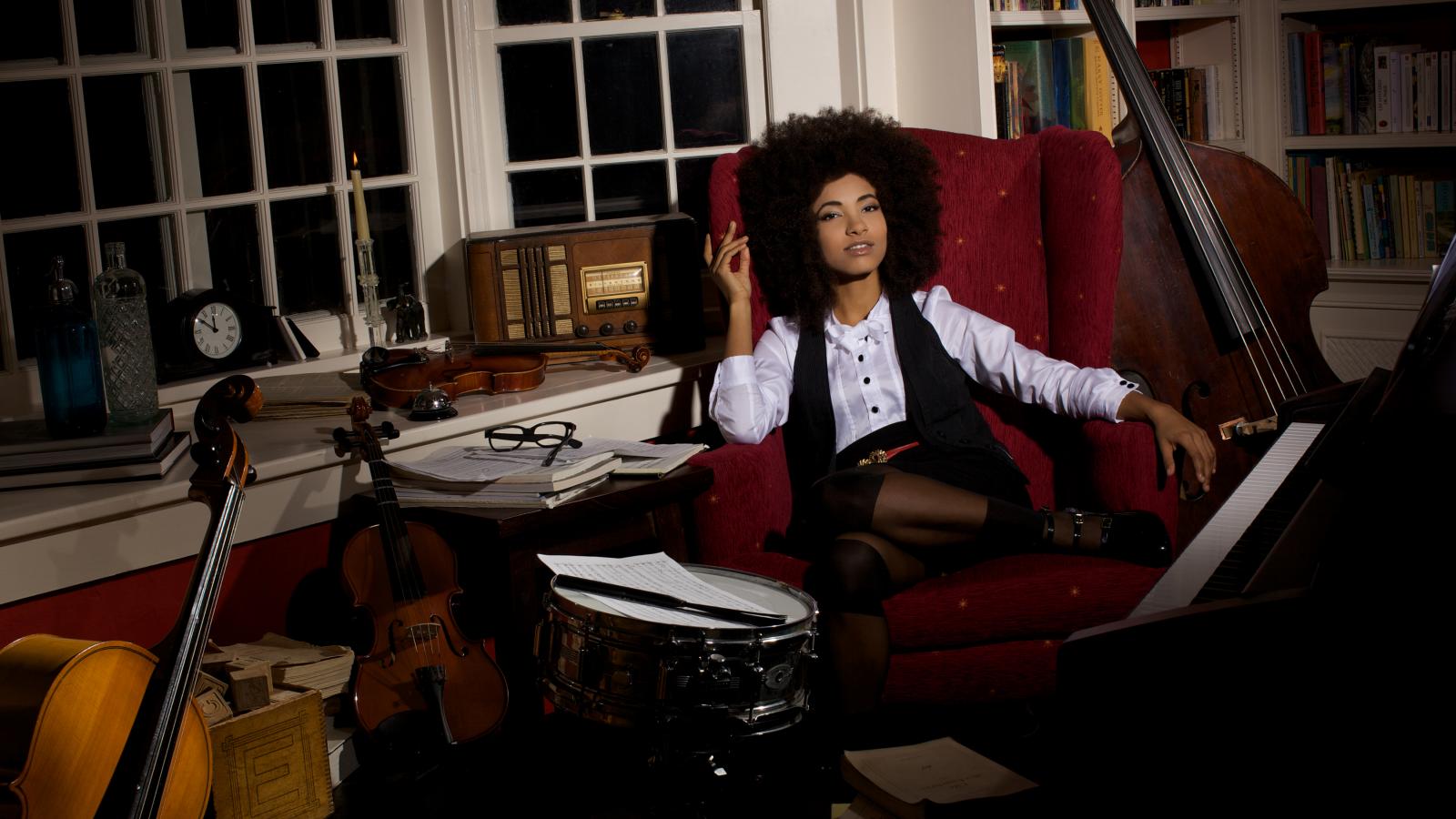
Bassist/singer/composer Esperanza Spalding. Photo by Sandrine Lee
"Something miraculous happens when you really study music," described bassist and singer Esperanza Spalding from her apartment in New York City. "When you take the time to learn techniques through your kinetic memory, and you focus on internalizing what you're studying, this mysterious force takes over. You put that knowledge together -- in real time -- in unique, unpredictable ways. It's different than science, math, and other subjects. It's unique to music and it exists purely in the moment."
Focusing her own musical knowledge with passion and determination, the young prodigy has channeled that mysterious, improvisatory force into three critically acclaimed albums as a solo artist as well as numerous performances around the world. Spalding's virtuosic blend of jazz, world fusion, and singer-songwriter musical forms have earned her a strong underground reputation that is, as of earlier this year, underground no more; her career received a tremendous boost when she was named Best New Artist at the Grammy Awards, notably upsetting better-known acts like rapper Drake and teen idol Justin Bieber.
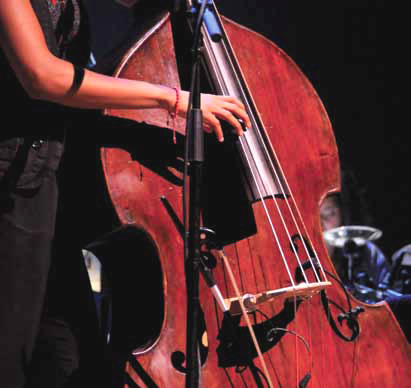
Photo by Ken Goodman |
Though she is a new face to many (though not to Barack Obama -- Spalding played at the White House in May 2009 as part of the Evening of Poetry, Music, and Spoken Word), all signs point to Spalding continuing to be a vital creative force for decades to come. In fact, her self-described "near religious commitment" to her art motivates her to constantly improve herself, in the process helping her to pursue her full potential as a musician, spread the gospel of the jazz idiom, and realize a host of dreams that transcend CD sales figures and gold statuettes alike.
As soon as the winner of the 2010 Grammy Award for Best New Artist was announced on national television, the storm of Facebook and Twitter comments began, all variations on a theme -- Who is Esperanza Spalding? That question was partially answered almost immediately by Spalding herself, who delivered a humble and exuberant acceptance speech that demonstrated, above all else, her commitment to her art. "I take this honor to heart so seriously, and I'll do my damnedest to make a whole lot of great music for all of you," she promised, glowing in front of the camera. "It's such a blessing and an honor!"
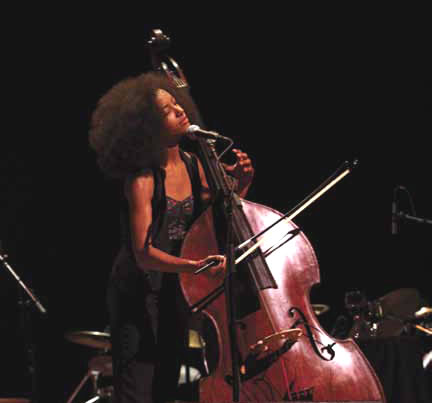
Photo by Ed Satterwhite |
While the announcement had the polarizing effects of rankling tween Bieber loyalists and delighting Spalding's own dedicated fan base, the artist herself remains impressively grounded in the aftermath of such a noteworthy triumph. "There's a bigger buzz humming through the media outlets and I'm getting invited to perform at higher profile venues," she said. "But my life, from the inside out, hasn't changed -- which I like. My day-to-day existence lets me balance business with lots of time to work on music. Hopefully that won't change too much."
Even while on tour, Spalding makes sure that such daily routines include hours of scheduled "practice and music study," though the quixotic creative sparks that become her musical compositions often defy even the most careful planning. "It usually happens in the middle of the night when I need to sleep and have an event the next day," she admitted, laughing.
Spalding's ideal day, on or off the road, involves deep immersion into her art. "There are so many aspects of what I'm striving for," she said. "When it's a free day, I like to sit with my instrument for six or seven hours. I wake up thinking of music, going from the piano to the bass, working on voice and lyrics. It's not only my job, but what I like to do for fun in my spare time. Every little nook and cranny I can juice the music out of, I do."
Though the Grammy nod may not have changed Spalding's internal creative life, it has fundamentally altered the way the world sees her, both as an artist and as a commercial entity. "A friend of mine recently told me, 'Don't forget that you've made it!' In a way, that's such a testament to our skewed views on artistic versus commercial success. I'm a professional musician and that's how I earn my living, but the goals I've set out for myself literally take decades to even touch. And they all relate to my artistic ideals, the potential that I dream I will have access to."
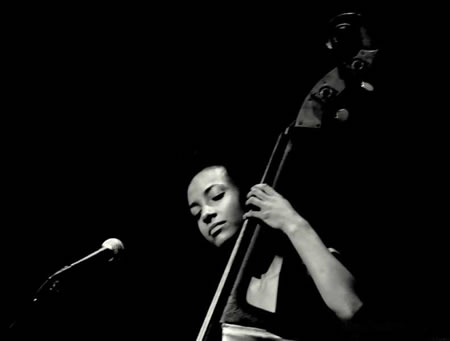
Photo by Ken Goodman |
Such goals include learning a third instrument, the piano, and further honing her craft as a composer and arranger as well; to that end, Spalding currently studies poetry to help improve her prose and lyric writing. And of course, there are her primary instruments, the upright bass and her singing voice, both of which she continues to practice in pursuit of "freedom and agility" of expression.
Melding the worlds of artistic and commercial innovation, Spalding further aspires to bring the musical tradition she studies to a wider audience. "I want to format elements of the music that I love so deeply in a way that it can be played on modern mainstream radio," she said. "Jazz is such a powerful art form, particularly the improvisation and communication that happens within it. I have a wish of it becoming acceptable to a wide audience without being watered down -- perhaps affecting enrollment rates of young people in music programs in the process, or allowing them just to be exposed to such an enriching art form, even if they're not all necessarily going to become professional musicians."
But how can such a thing happen? "The challenge is not 'Let's make this more accessible,'" she said. "The challenge is, 'Let's not change the music and not change the players and not change the writing, but find a way -- whether it's through the sound of a guitar on a recording or a new type of arrangement, or whatever tools we have access to -- to put this on the radio so young people can hear a good song and improvisations by a beautiful band and go, 'Wow.' I wish that more kids would be exposed to the arts -- and my little piece of that is improvised music."
As a female upright bass player, Spalding is somewhat of an anomaly in the largely male-dominated jazz world, and she has had to confront her own set of challenges as a result. But she has approached any resulting obstacles with tenacious clarity: "It's easy to find acceptance in the jazz community! Just be a serious player and work really hard."
"Well," she added, laughing. "It's simple. Not easy."
Though many fans and musicians alike admire her skill and ingenuity, Spalding's acclaim is not universal. "Some people think I'm a total quack," she commented wryly. "'Who is this girl, thinking she's playing our music?' I've heard that through the grapevine. To me, it comes down to a matter of taste. People thought Ornette Coleman and Thelonious Monk were quacks, but ultimately, their commitment to the music couldn't be questioned. If you knew them, you know that they worked diligently and loved jazz.
"When I started playing professionally, I didn't really know how to show my own diligence," she continued. "I thought I just deserved to be accepted, to sort of get it for free. I used to be upset when people didn't take me seriously. After a little while, though, it occurred to me that I knew how serious I was about this, and that my energy needed to go first into my work. I figured acceptance would follow from there. Lo and behold, that's exactly how it works."
Spalding continues to grow as a musician, and strengthen her bonds within her musical community, both by studying on her own and learning from fellow players. "It's a community you join not because it's some fun club to be in, but because you love the music," she said. "If you're willing to learn from the giants who came before you, be respectful, and actively engage the amazing musicians you come in contact with, acceptance becomes a moot point."


